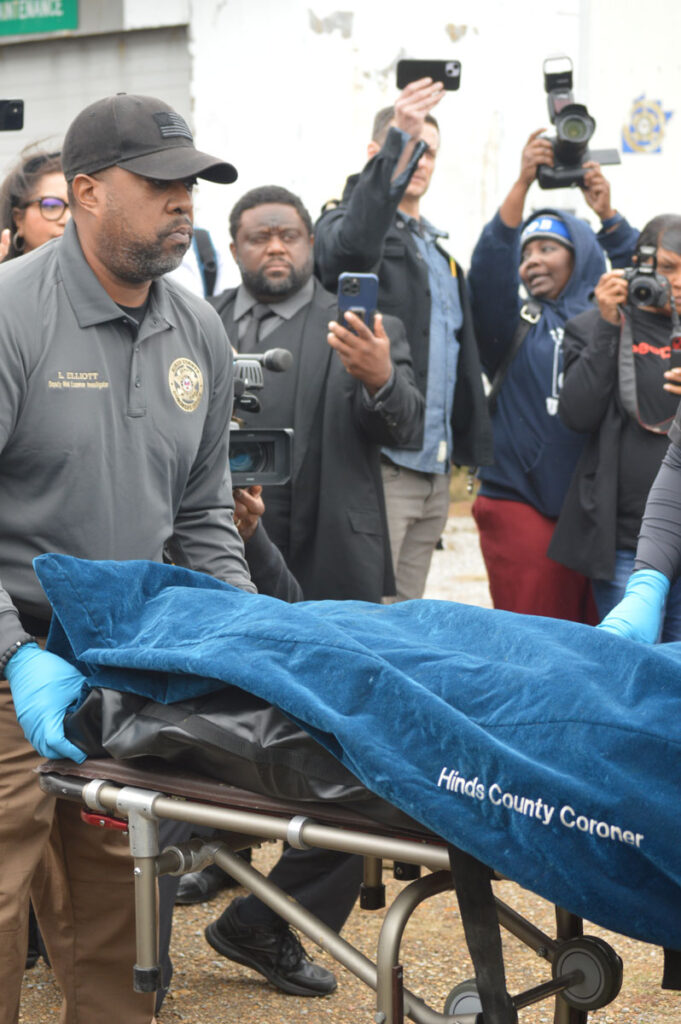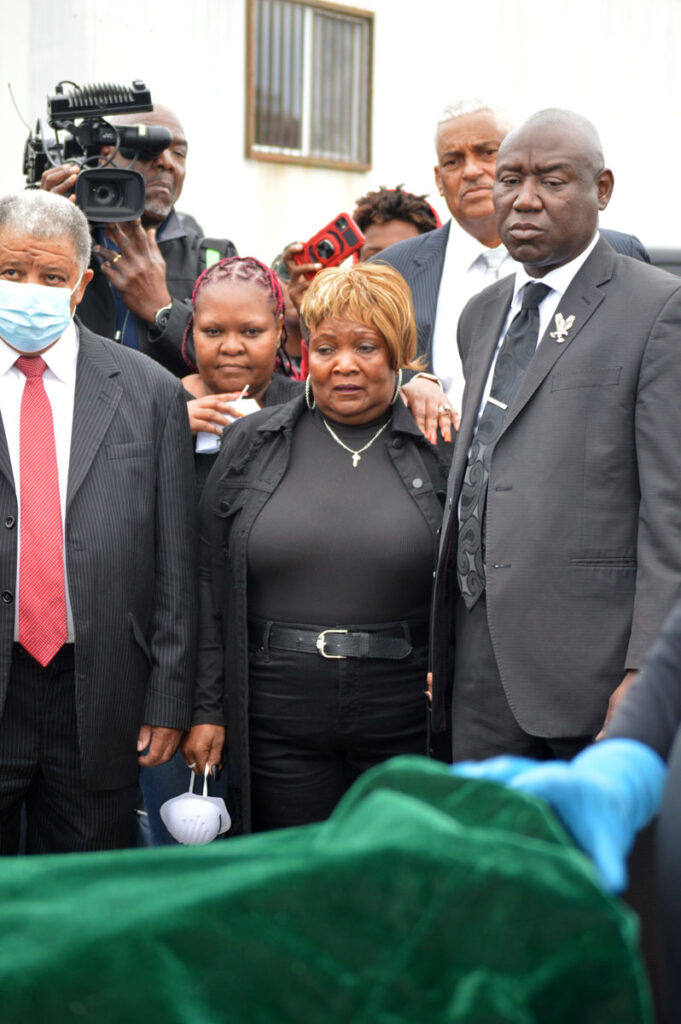But cash bail is undergoing a reckoning as policymakers debate its disproportionate effects on underserved communities and people with low incomes who sometimes can’t afford bail — as well as just how much the system truly keeps the public safe.
This year some states such as Illinois and jurisdictions such as Los Angeles County in California and Cuyahoga County in Ohio scaled back their bail systems, even eliminating cash bail entirely for low-level offenses in some cases.
Policymakers in other places, meanwhile, are moving in the opposite direction.
Republican lawmakers in at least 14 states — including Georgia, Indiana, Missouri and Wisconsin — introduced about 20 bills this year aimed at increasing the number of non-bailable offenses and either encouraging or requiring judges to consider defendants’ criminal records when setting bail, according to analysis by The Associated Press.
And in New York state, where changes to curtail the use of bail took effect in 2020, lawmakers have made several rounds of rollbacks amid concerns about rising crime rates.
Some bail policy advocates argue that these changes may contribute to racial and socioeconomic discrimination by relying on one’s ability to post bail and undermine the idea that those accused of a crime are presumed innocent until proven guilty.
“There’s no single answer to effective bail reform,” Meghan Guevara, executive partner with the Pretrial Justice Institute, a criminal justice advocacy group, told Stateline.
Measures to increase the use of cash bail or to include certain factors in assessing bail eligibility saw varying levels of success. In Wisconsin, voters approved a state constitutional amendment in April allowing judges to consider factors such as a defendant’s past convictions and the need to protect the public from bodily harm in “violent crime” cases.
Missouri Republican Gov. Mike Parson signed legislation in July that requires judges who are setting bail to first consider factors such as a suspect’s flight risk, potential danger to others, past convictions for violent crimes and previous failures to appear in court.
In Indiana, lawmakers in April passed their first swipe at Senate Joint Resolution 1, which would amend language in the state’s constitution and enable judges to deny bail to those they consider a “substantial risk.” The bill must pass again in 2025 before appearing on the ballot in 2026.
In Georgia, lawmakers considered legislation that sought to impose cash or property bail for dozens of additional crimes, including misdemeanors. It failed due to disagreements between the House and Senate, but Republican state Rep. Houston Gaines, who sponsored the measure in the House, expects the bill to pass in the next legislative session.
Gaines, in an emailed statement, said: “Eliminating cash bail has been a disaster in places it’s been tried — even New York has reversed course on some of its radical policies. We can’t afford to create a revolving door of criminals who don’t show up for court and victimize other individuals.”
Political backlash and rollbacks
Between 2017 and 2019, a bipartisan movement for changes to bail systems gained momentum at both the local and state levels. Some states, such as New Mexico, New Jersey and Kentucky, sharply curtailed their cash bail systems by almost entirely eliminating cash bail, expanding release programs and moving toward risk-based assessments to determine pretrial release.
In 2020, the COVID-19 pandemic strained crowded jails and detention centers, and agencies eased bail systems to reduce exposure.
Between 2019 and 2020, homicide rates increased 30% — one of the largest year-over-year increases on record, according to data released by the FBI and the federal Centers for Disease Control and Prevention. Homicide gun deaths also surged 35% in 2020, the largest year-over-year increase recorded in more than 25 years. Despite these increases, the overall violent crime rate in the country did not increase during the pandemic, according to federal crime surveys.
In California and New York, policymakers rolled back their pre-pandemic changes to cash bail.
“Fears about public safety are in many ways greatly overblown and misplaced,” said Sharlyn Grace, a senior policy adviser at the law office of the Cook County Public Defender in Illinois. “It is exceedingly rare for someone who’s released pretrial to be arrested and accused of a new offense that involves violence against another person.”
A report released by the New York City Mayor’s Office of Criminal Justice in 2021 found that about 95% of individuals arrested and released between January and September 2020 were not rearrested while awaiting trial, and there was a very little difference in rearrest rates before and after bail reform in the state.
It is exceedingly rare for someone who's released pretrial to be arrested and accused of a new offense that involves violence against another person.
– Sharlyn Grace, senior policy adviser at the law office of the Cook County Public Defender in Illinois
New York had passed a sweeping overhaul in 2019, largely ending the use of money bail for misdemeanors and lower-level felonies, with a focus on imposing the “least restrictive” release conditions. The state’s bail law has undergone multiple rounds of revisions since then, primarily driven by calls from Republicans to amend or completely reverse the law.
In early 2020, New York expanded bail options, particularly in cases involving harm to a person or property. In 2022, the state further broadened the definition of “harm” and clarified factors judges must consider, such as criminal history, when setting release conditions.
This year, negotiations over additional changes led to the removal of the requirement for the “least restrictive” release, a proposal announced by Democratic Gov. Kathy Hochul last spring.
Some state Democrats and criminal justice advocacy groups have strongly criticized these changes, arguing that the most recent revisions represent a rollback in progress.
“These rollbacks have had a serious effect on our pretrial population, and we’re still seeing the same kinds of wealth-based and racial inequities that were the drivers of bail reform in the first instance,” said Jullian Harris-Calvin, the director of the Greater Justice New York program under the Vera Institute of Justice, a national nonprofit criminal justice advocacy group.
Money bail remains prohibited for most misdemeanors and nonviolent felonies in New York, with some exceptions related to rearrested individuals.
In 2018, then-California Gov. Jerry Brown, a Democrat, signed Senate Bill 10 into law, which would have made the Golden State the first to end the use of cash bail for all detained suspects awaiting trials. The American Bail Coalition, a nonprofit trade association representing the bail industry, pushed back hard, organizing Californians Against the Reckless Bail Scheme to lead a repeal effort through a veto referendum.
Voters repealed the measure in 2020. Some who opposed the law said the proposed risk assessment tool — which generally measures factors such as flight risk, public safety risk and criminal history — could potentially cause more harm than good, said Allie Preston, a senior policy analyst for criminal justice reform with the left-leaning policy institute Center for American Progress. Some bail policy advocates say using risk assessment tools in the pretrial process may contribute to more racial and socioeconomic inequities.
Jeff Clayton, the executive director of the American Bail Coalition, said in an interview that risk-based assessments are problematic because “there’s no scientific way to predict pretrial risk in terms of a particular defendant.” Clayton added that setting a bail amount offers more flexibility, which may be beneficial in some cases.
“The question is, can we engineer the alternate system better than the existing system of monetary bonds, posting bonds and staying in jail that’s existed throughout history?” Clayton said. “There’s reasons to suggest that we can’t do a better job.”
Although statewide change to California’s bail system failed, a few jurisdictions in the state have introduced other changes to their bail systems. Santa Clara County and the city of San Francisco both use risk assessment tools and offer other services to help those released pretrial return for their court dates and address needs, such as transportation.
The Los Angeles County Superior Court implemented a zero cash bail system in October. Under the new bail protocols, those charged with nonviolent or less serious crimes will be detained before arraignment only if a judge determines they present a threat to the community or a potential flight risk instead of whether they are capable of posting bail. In cases of violent and serious felonies, however, the bail system remains intact.
“[Los Angeles County’s new] bail policy is a really important step towards promoting safety and justice and away from a system where the rich are able to buy their freedom and the poor languish in jail,” said Claire Simonich, the associate director of Vera California, an initiative under the Vera Institute of Justice.
Some residents, county officials and members of law enforcement say the new policy will compromise law enforcement’s ability to address crime. And at least a dozen municipalities in Los Angeles County filed a lawsuit in September to block the new system from taking effect.
More legislative efforts
Lawmakers in some states have pushed for further changes in their legislative sessions.
Connecticut state Rep. Steven Stafstrom, a Democrat, said the problem in his state stems from an outdated constitutional provision that limits the state’s ability to deny bail, primarily reserving bail for capital offenses. But the state abolished the death penalty more than a decade ago. Since capital offenses no longer exist in Connecticut, there are limited legal grounds for holding people pretrial, especially if they have the financial means to post bail.
“We really need to first repeal that provision out of the state constitution and then move much more towards a risk-based system that takes into account someone’s risk and likelihood to flee as opposed to simply their ability to pay,” Stafstrom said in an interview with Stateline.
In Minnesota, a bill introduced by Democrats this year would limit the use of cash bail by the courts for misdemeanor offenses.
In Cuyahoga County, Ohio, where Cleveland is located, informal changes to the court’s culture and practices have reduced the number of people required to pay cash bail, according to The Marshall Project, a news outlet focused on criminal justice. The state supreme court also made changes in 2020 and 2021 aimed at reducing the number of people jailed before trial. Last year, voters passed a measure that requires judges to consider certain factors when setting bail, including public safety.
The adoption of alternative approaches, such as pretrial risk assessments, is gaining ground across the country. Some two dozen different risk assessment tools are in use in at least 26 states, according to the National Conference of State Legislatures.
Photo credit: Kris Arnold
This article originally appeared in the Stateline.org on November 13th, 2023.
Please support and visit The Brooks Blackboard's website for more news stories, and this link for my brief bio.
On social media, visit me on
Facebook: The Brooks Blackboard
.png)
.png)
.png)



.png)





.png)
.jpg)